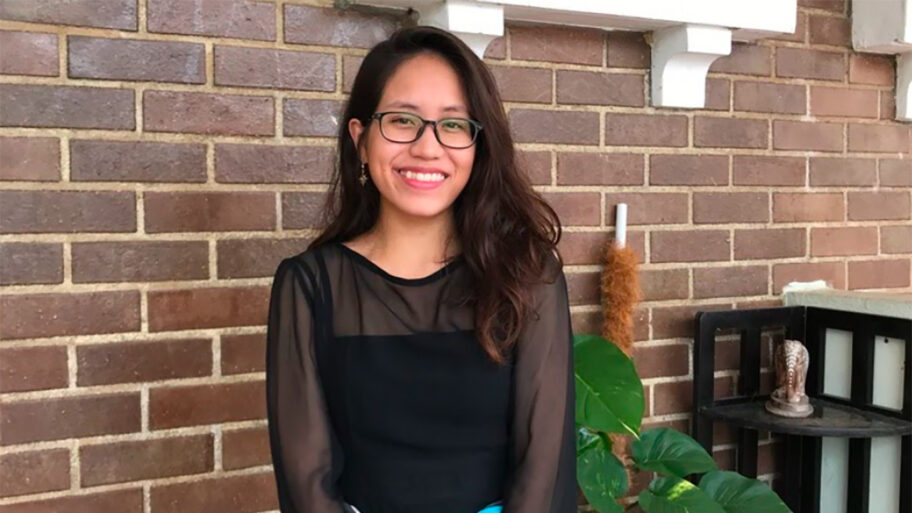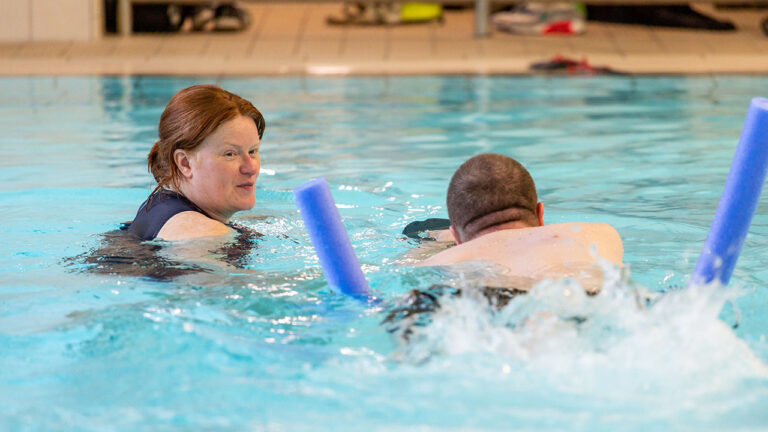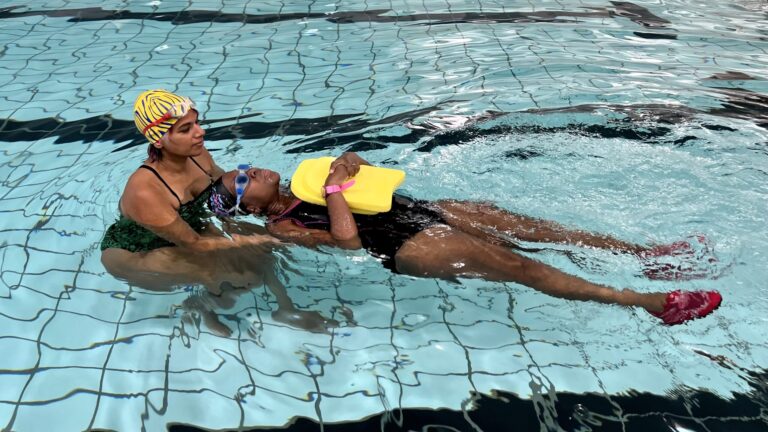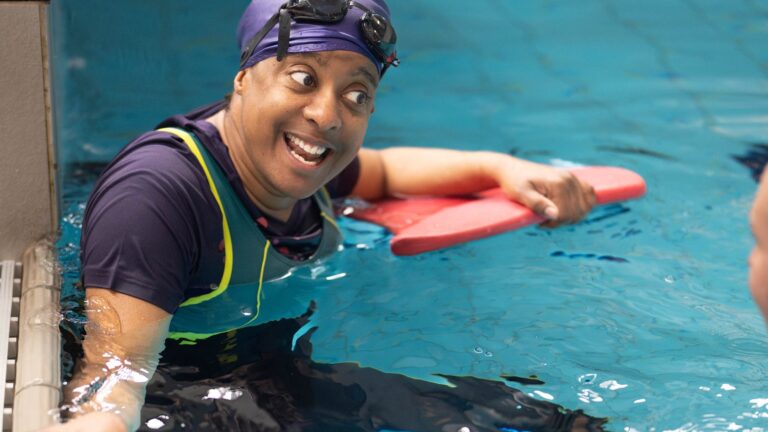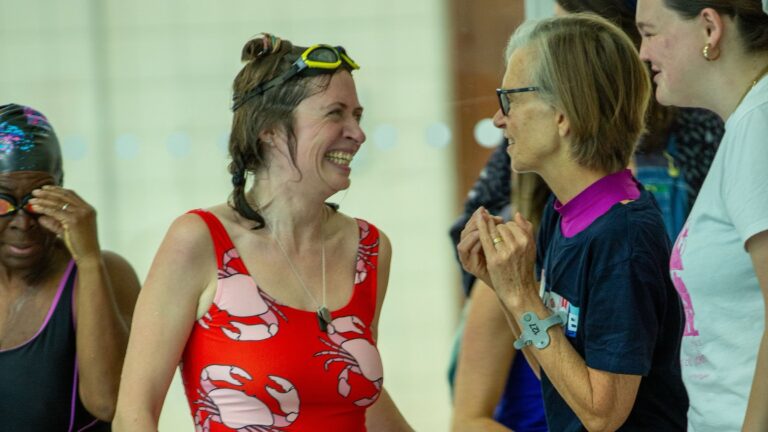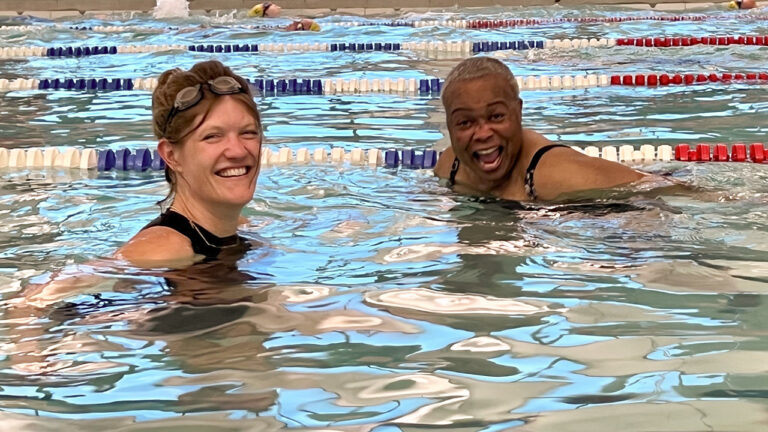This week, we are talking to one of our volunteers, Emirah, who is sharing her experience. She has a fascinating story about volunteering with children in Asia before joining WeSwim.
Emirah, Tell Us a Bit about Yourself.
Hi, Emirah here! I’m 20 years old, born and raised in sunny Kuala Lumpur, Malaysia and I’m currently in my final year of physiotherapy studies. I’m a massive sports enthusiast – mainly swimming, running, rock climbing, and dabbling in a bit of rugby here and there.
What about Swimming in Particular?
I started swimming when I was five years old and became a competitive swimmer and triathlete in boarding school. I represented my state at national competitions (for front crawl and backstroke whoo!) and have participated in three triathlons and one iron woman challenge so far.
Very Impressive! You Said You Were from Malaysia, Could You Please Tell Us More about Your Experience There?
I started volunteering there circa 2015 to help out at a non-profit organisation for children with autism spectrum disorder (ASD) which partnered with my local swimming club. This is how I first found out about the wonders of swimming and hydrotherapy for people with ASD. This activity also enabled me to combine my interest with working with children together with swimming.
My club held fortnightly swimming sessions for the children to teach them about water confidence and basic swimming skills (treading, kicking, floating). These sessions also worked as social events for the participants to have fun and enjoy themselves. We also encouraged parents and guardians to come along for support but also for education purpose, so they could then apply the same techniques with their child.
What Is Your Most Memorable Moment?
Without a doubt, it was when one of our swimmers finally did his first tumble turn. It’s fair to say that tumble turns can be quite daunting for first-timers: we would spent entire sessions simply trying to initiate the first turn. I will never forget how the swimmer’s face lit up when he emerged from the water after his tumble turn: it was a look of pure happiness and I was so grateful to have helped him through it. He couldn’t stop doing them right up till the session was over!
How Has This Experience Impacted Your Life?
Working with kids, especially those on the autism spectrum, can be a little tricky at times but I feel it was extremely eye-opening to witness just how much the actions from volunteers truly impact their life. Before the partnership with my swimming club, the majority of the kids had probably never stepped in a pool because they didn’t have anyone who could help them in the water, in addition to the pools not being disability-friendly. Being the person who can help them through this journey felt amazing. I have also come to realise that it’s sometimes only a matter of small things to make sports accessible for everyone. For example, simply helping someone get in and out of the pool safely can make a huge difference.
Tell Us about Your Experience of Your First Weswim Session, Back in the First Quarter of 2020.
We started off with a fun exercise in pairs: one person was blindfolded and the other had to describe the surroundings and the direction they were headed in around the pool and changing area. As one can expect, it was quite scary being blindfolded and having to trust someone to guide you around. More surprisingly, it wasn’t that easy to be the guide either: there were so many sounds, people and things going on that it was hard to keep up on what to describe. Overall, it was a great experience as it helped me to understand what it’s like for a disabled person to put their trust in someone to help them around. After the exercise, I spent the rest of the session with one of our regular swimmers who was looking to do some floating and pool walking exercises. I also joined another swimmer, Ramin, for a few front-crawl laps.
Is There Something from Your Experience in Malaysia That Has Helped You for Weswim?
My biggest take-away is the understanding that every swimmer is unique: they have different, personal needs and goals. Some might want to train for a 2km swim event, so they’re looking for a training buddy to help perfect their techniques. Others might want to do some hydrotherapy to help strengthen their muscles and keep fit, or simply enjoy themselves in the water and have someone to talk to. That’s why I think that the most important qualities for a volunteer are a little patience, kindness and respect for all the swimmers.
What Are Your Projects with Regards to Volunteering in 2021?
I’d love to carry on with WeSwim. Even though I’ve only been to a couple of sessions so far, I felt a real and strong bond with both the swimmers and volunteers. I’ve also got plans to join a volunteering programme with Headway East London, a charity organisation for people affected by brain injuries. Since I’ll be graduating soon in the summer of 2021, I’m looking forward to spending my last few months in London filled with good memories.
Thank you, Emirah, for this great discussion and we look forward to seeing you when we start swimming again, hopefully before your graduation.
